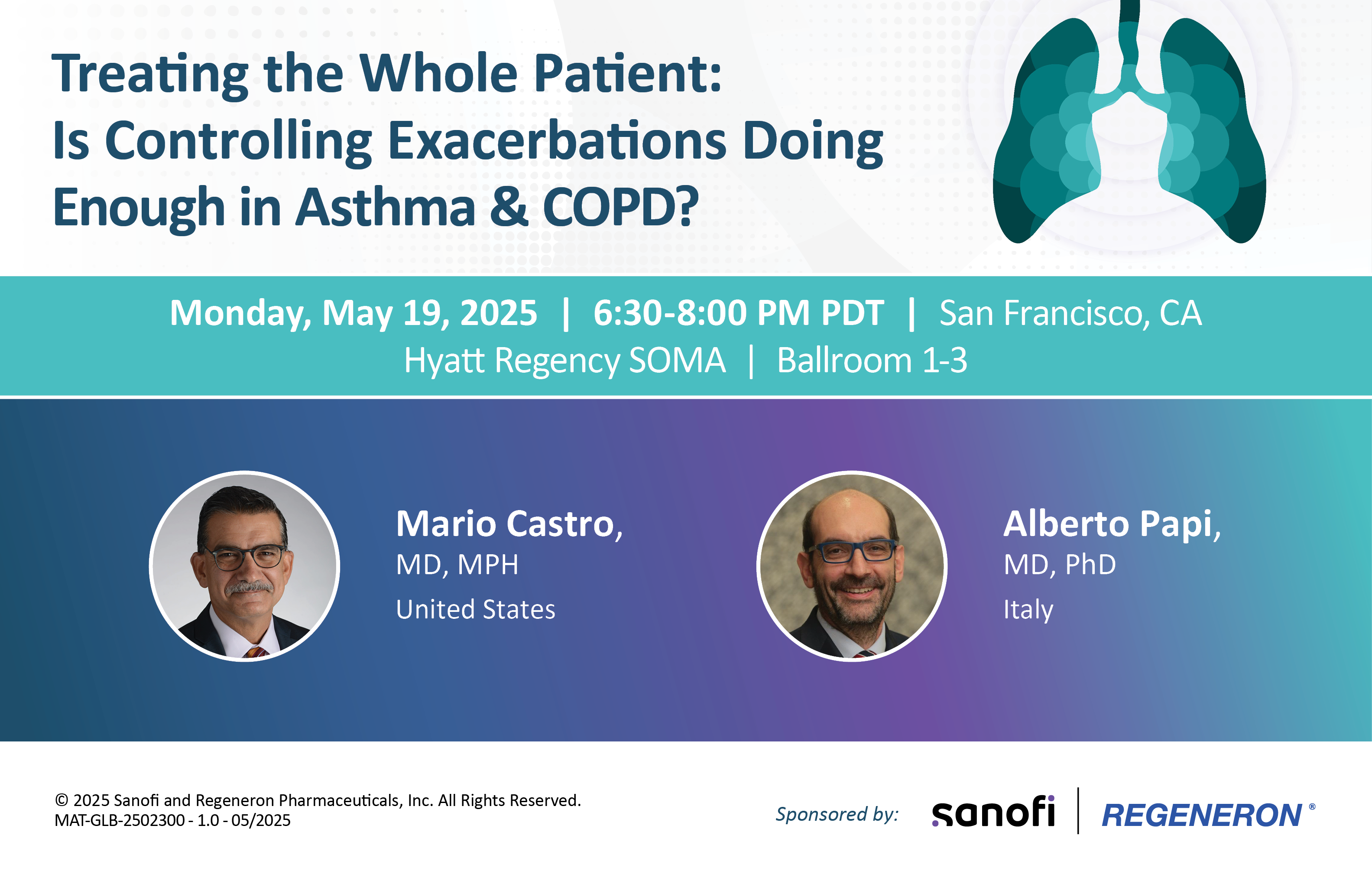On Monday, May 19, 2025, from 6:30-8:00 PM PDT, join global experts Mario Castro, MD, MPH and Alberto Papi MD, PhD for an educational symposium titled, “Treating the Whole Patient: Is Controlling Exacerbations Doing Enough in Asthma and COPD?”. They will explore the similarities and differences across asthma and COPD, present data on these two diseases, and discuss the value of early intervention and the potential for disease modification in the lower airway. The learning objectives of the symposium are to identify the roles that type 2 inflammation plays in the pathophysiology and disease course of asthma and COPD, understand the concept of airway remodeling in asthma and how intervention may impact these processes, and explore clinical data and studies in COPD.
The agenda topics are unraveling Type 2 Inflammation in the Airway: Comparative Insights into Asthma and COPD, exploring the Potential Impact of Early Intervention in Asthma, a Panel Discussion on airway Remodeling in Asthma and COPD and the Potential for Early Intervention, and the role of IL-4/IL-13 Inhibition in COPD: Clinical Data.
This symposium will conclude with an interactive Q&A with our distinguished faculty, Mario Castro, MD, MPH, and Alberto Papi, MD, PhD, so please come ready with any questions you may have.
Registration for the 2025 ATS congress is required to attend the symposium live.
Asthma and COPD are chronic, heterogeneous, inflammatory diseases of the lower airway characterized by airflow obstruction, shortness of breath, and exacerbations, which are serious acute respiratory events marked by heightened respiratory symptoms. Despite advances in care, exacerbations remain a significant clinical challenge, contributing to lung function decline, frequent hospitalizations, reduced quality of life, and increased mortality. Therefore, it is important for healthcare professionals to recognize the shared inflammatory mechanisms and the distinct ways these diseases may present in clinical practice.


